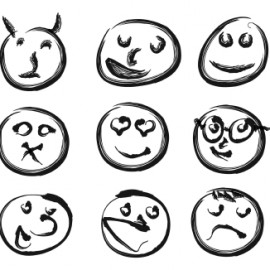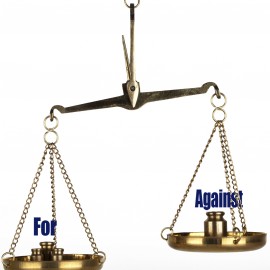How to Talk so Someone With Addiction Will Listen (clinicians)
 Helpful discussions for treatment clinicians & recovery pros
Helpful discussions for treatment clinicians & recovery pros
Useful stories and common sense answers to your questions about challenging cases and clinical issues from Scott McMillin, co-author of “Don’t Help: A Positive Guide to Working With the Alcoholic,” “The Healing Bond: Treating Addictions in Groups,” and five other popular addiction books.
Have a question? Use the form in the sidebar.
space
Will This Client Follow Directions?
If Bob gets a job, his mom will ask him to move out of the basement, and he’ll have to get a roommate, which he doesn’t want, so better to remain unemployed.
Topics: client engagement and motivation, compliance and noncompliance, counseling skills
Trapped: Helping Clients Avoid Relapse
Would have been easy enough to avoid, had I seen it coming. Unfortunately the brain I was using to make decisions was the addicted one. It was not a friend to recovery.
Topics: addiction and the brain, craving, patient education, relapse, signs and symptoms, tobacco
Alexithymia: What’s That Feeling?
It’s as if the addict is so accustomed to just acting on impulse that he/she has lost touch with the source of the impulse — ordinarily a negative emotional state such as anxiety, anger, sadness, etc.
Topics: communication, counseling skills, emotional issues, groups, signs and symptoms, therapies and tools
Finding Evidence-Based Practices
Seeking evidence, and applying practices based on evidence to your clinical interventions, can help making decisions that increase the chances of a desired outcome
Topics: counseling skills, therapeutic models, therapies and tools
Waiting (and Waiting…) for Inpatient Beds
If your inpatient provider determines eligibility using ASAM patient placement criteria, don’t forget to describe the patient’s need in those terms. Makes your case a little stronger by making their job a little easier.
Topics: clinical management, inpatient treatment, outpatient treatment, referral
Music Hath Charms
You’re aware that music therapy is used in mental health settings. Playing music is great, but for most of us, it’s enough just to listen and be affected.
Topics: groups, Recovery Tools, relaxation, therapeutic models, therapies and tools, tools for recovery
Finding the Right Opioid Treatment Program
Some of what patients hear is gossip and folklore, something for which the addict community is famous. But there is a wide variation in quality among OTPs.
Topics: client types and needs, finding the right treatment, MAT, opioids, referral, therapies and tools
Engaging Coerced DUI Clients
First, they don’t understand why they’re in treatment, or how it could possibly benefit them. Second, they’re ticked off about having been coerced.
Topics: addicted offenders, client engagement and motivation, client types and needs, DUI/DWI, groups, legal problems
Material Clients Can’t (or Won’t) Read Doesn’t Help Them
It’s not so much that the client is unable to grasp the info as he or she is easily discouraged based on a fund of previous negative experiences in school.
Topics: client engagement and motivation, cognitive behavioral therapy, patient education, therapeutic models, therapies and tools
“They’ll See Me Going To Your Program”
The family is operating under the misconception that folks in their town don’t know, when they already do.
Topics: family dysfunction, family involvement, stigma, toxic relationships















